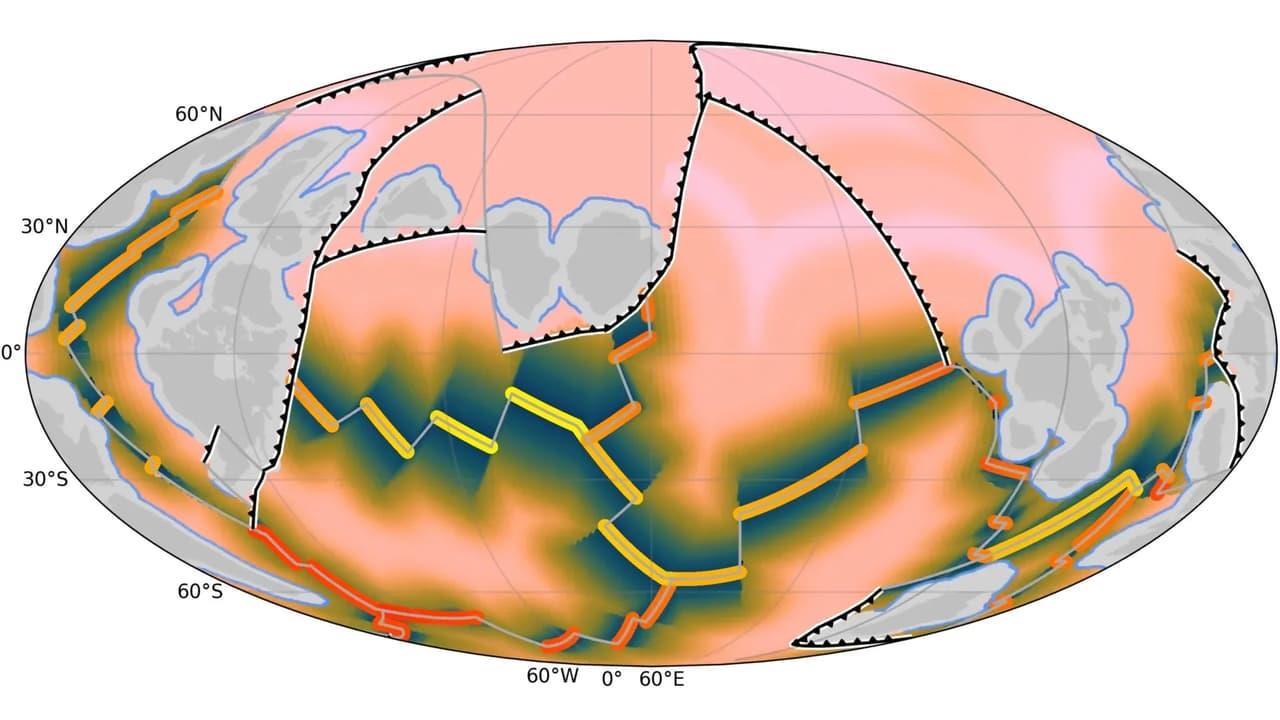
Earth's“Boring Billion” Set The Stage For Life's Great Evolution
New research reveals that Earth's so-called“Boring Billion” - a period between 1.8 and 0.8 billion years ago - was anything but dull. Scientists from the University of Sydney and the University of Adelaide have found that this era was a turning point in the planet's geological and biological evolution. Their study connects the breakup of the ancient supercontinent Nuna to the rise of complex life - a shift that laid the foundation for plants, animals, and humans.
A Hidden Revolution Beneath the Surface
Published in Earth and Planetary Science Letters, the research challenges long-held assumptions that the“Boring Billion” was a stagnant phase with little change in Earth's climate or life. Instead, scientists discovered that the disintegration of Nuna around 1.5 billion years ago unleashed deep-Earth processes that reshaped the planet's surface, oceans, and atmosphere.
As Nuna broke apart, it triggered a drop in volcanic carbon dioxide emissions, while expanding shallow continental seas - zones that became fertile breeding grounds for new life forms. These shifts created a more oxygen-rich and cooler environment, ideal for the emergence of eukaryotes, the complex single-celled organisms that would eventually evolve into multicellular life.
“Our work shows how plate tectonics shaped Earth's habitability,” said lead author Professor Dietmar Müller from the University of Sydney.“It reveals how the planet's deep interior processes influenced both climate and life through deep time.”
Cooling the Planet and Enriching the Seas
The study shows that as continental shelves more than doubled in size, shallow waters flourished with oxygen and nutrients. Meanwhile, as volcanic activity decreased, carbon became locked in oceanic crust and rocks instead of being released into the air - cooling Earth's climate and stabilizing ocean chemistry.
This dual mechanism - reduced volcanic CO2 release and increased geological carbon storage - turned Earth into a more habitable world.
The Spark of Complexity
Around 1.05 billion years ago, fossil evidence of early eukaryotes began to appear, coinciding with the spread of these oxygen-rich seas. Researchers describe these shallow-water environments as“ecological incubators”, where early complex life could thrive and diversify.
Ultimately, the study reveals that far from being uneventful, the so-called“Boring Billion” was a billion years of quiet preparation - when Earth's deep tectonic shifts set the stage for life's greatest leap forward.
Legal Disclaimer:
MENAFN provides the
information “as is” without warranty of any kind. We do not accept
any responsibility or liability for the accuracy, content, images,
videos, licenses, completeness, legality, or reliability of the information
contained in this article. If you have any complaints or copyright
issues related to this article, kindly contact the provider above.

















Comments
No comment